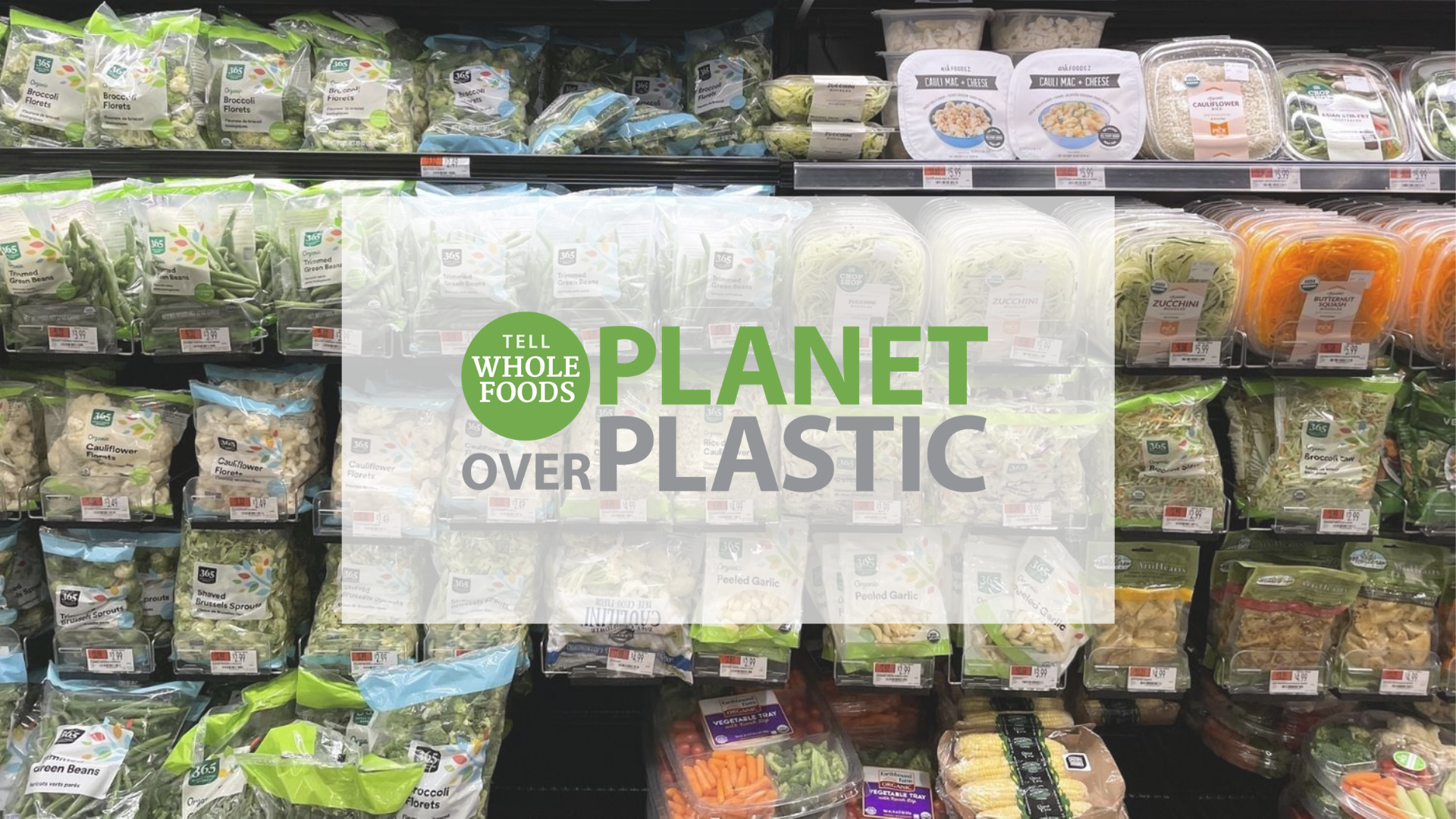May 2022 New England Letter to Whole Foods
50+ local organizations called on company to put Planet over Plastic
On behalf of our 56 organizations, we are writing to you to urge you to eliminate single-use plastic packaging from Whole Foods stores in the North Atlantic Region.

Rick Bonin, President, Whole Foods North Atlantic
250 Forest Street
Marlborough, MA 01752
May 18, 2022
Dear President Bonin,
On behalf of our 56 organizations, we are writing to you to urge you to eliminate single-use plastic packaging from Whole Foods stores in the North Atlantic Region. As people who are passionate about the health and abundance of our natural world, we believe Whole Foods has a bigger role to play in tackling the global plastics pollution problem.
From whales coming to the sea’s surface to birds soaring through the skies to the moose, chipmunks, and cottontails that roam forest floors– our planet is home to majestic and incredible wildlife. Our landscapes, both coastal and inland, provide incredible opportunities for recreation and enjoyment – boating, swimming, fishing, hiking, biking, and more. We hold these activities close to our hearts and want to see landscapes and wildlife thrive for generations to come.
But plastic pollution is putting our oceans and our planet at risk. Nearly 700 marine species that have been found to have plastic in their body, such as sperm whales, sea turtles, dolphins, fish, and crabs. Plastic that enters our lakes, rivers, and trails affect species such as the beaver, trout, and bald eagle. Even more alarming is the fact that plastics are indestructible. The plastic that we use today will never disappear. As plastics break down into smaller pieces, toxic chemicals are released into our environment and eventually make their way into our own bodies.
Single-use plastic packaging is a major source of this pollution. 25 million tons of single use plastics find their way to the oceans annually, the equivalent of 1 garbage truck of plastic being dumped into our oceans every minute. By 2030, that number is expected to increase to 2 trucks per minute, and 4 by 2050. This will do immense damage to terrestrial and aquatic ecosystems.
To protect our planet, we need Whole Foods to take the lead on environmental protection once again and commit to eliminating single-use plastic packaging from its stores in the North Atlantic. Whole Foods led the industry when it eliminated single use plastic bags from checkout in 2008: it is time for Whole Foods to lead the charge again and ensure that customers can leave the store with a basket of groceries without the side of plastic. Other supermarket chains have already begun making the switch, such as Mid Atlantic chain Giant Eagle, who has pledged to eliminate single use plastics from their 474 stores by 2025.
Plastic from the North Atlantic Region won’t just affect people and wildlife in the Northeast– circulating ocean currents will carry plastic from North Atlantic Whole Foods around the world. The choice you make at this moment has the potential to have a global impact. We urge you to do the right thing for the health of our planet.
Sincerely,

